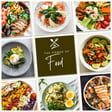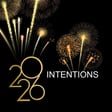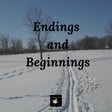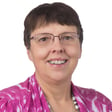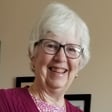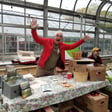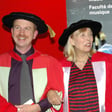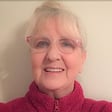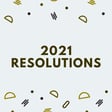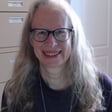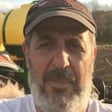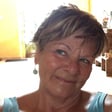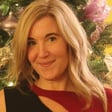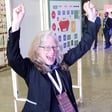Become a Creator today!Start creating today - Share your story with the world!
Start for free
00:00:00
00:00:01

How crafts connect generations with Mary Sutherland
This week, Unapologetically Canadian features an interview with family historian and quilter Mary Sutherland. Mary tells us about the art shows, retreats and charity, all featuring quilts. To read the show notes, refer to https://traceyarial.com/blog/mary-sutherland.
Transcript
Kroger Ad and Holiday Ingredients
00:00:00
Speaker
Whether it's Kroger, Simple Truth Turkey, or mac and cheese with Murray's English Cheddar, or pie made with fresh cosmic crisp apples, there are many dishes we look forward to sharing during the holidays. And Kroger has all the fresh ingredients you need to turn today's holidays into tomorrow's memories. Kroger, fresh for everyone. Choose from a great selection of digital coupons and use them up to five times in one transaction. Check our app for details. Kroger, fresh for everyone.
Montreal Lockdown and Public Restrictions
00:00:32
Speaker
My name is Tracey Ariel and I am an apologetically Canadian.
00:00:44
Speaker
Hey Tracey Ariel here and this is the first week of October and October 4th as I record this and basically this week you can't help but know that the government definitely politics definitely matters this week the government just announced that they were changing there were as Montreal goes into almost lockdown again we're in the red zone
00:01:08
Speaker
It's not 100% locked down but close enough. They're still leaving the schools open, they're leaving the gyms open, they're leaving the malls open, but all restaurants have to deliver now and there's no gatherings allowed anymore. They're giving police special powers to be able to stop gatherings if they're happening.
00:01:30
Speaker
Every indoor place you have to wear a mask and they're asking you to eliminate anything that's not necessary. So not 100% confinement, but close. So that's one way that the government definitely affects our lives.
00:01:47
Speaker
The other way, they changed the SERB, which is if you're a creator and a business person like I am, then you don't fit into any unemployment system.
Family Activities and Farmers' Market Adaptations
00:02:02
Speaker
So they have a system where you can actually sign up for a maximum of 26 weeks.
00:02:07
Speaker
You have to be open to getting any job that's offered to you. You have to be actively looking for a job. They've actually combined the SERB into the unemployment system to try and prevent some of the abuse that I guess they felt was happening in the previous, you know, holds barred SERB. The rules are a little bit tighter, but obviously if you don't have a job because of COVID, it will still give you a little bit of extra financing.
00:02:34
Speaker
So that is definitely a way that the government is helping us at the moment. The other thing that's happening this week, of course, I have everybody in the family is going off pumpkin picking and apple picking and this is a big harvest now.
Shift to Online Community Engagement
00:02:50
Speaker
The markets are moving into the greenhouse this week. We're doing a lot of extra work to try and make them safe for everybody. I'm going to definitely be putting a filter into my mask this week so that I can be protected too.
00:03:04
Speaker
And we're just basically, I guess the word of the week is flexible. Be flexible because you have to actually respond and keep your business going despite some pretty heavy trauma this time.
Gardening Adventures in Colder Weather
00:03:19
Speaker
On the community side, there's a lot of organizations that are doing their annual general meetings by Zoom.
00:03:26
Speaker
there's a lot of people who are doing training by Zoom so depending on what you're looking whether you want to get actively involved in a group in your neighborhood or whether you want to get training or and basically most of the socializing is going to be online now so I'm pretty lucky because it was my birthday last week and my husband gave me some lights so that on Zoom meetings I will no longer have shiny foreheads
00:03:53
Speaker
or be in the dark. He got lights and he installed them for me on my desk and they even can change colors so I can actually change the color that I am if I want to get someone's attention. I think it's going to be really fun to play and I guess that's the kind of world we're in these days. Everything is online all the time which is why I'm outside now. I'm giving every opportunity to go outside and I suggest you do the same despite the
00:04:22
Speaker
Frosty weather here in Montreal, it's well it was five degrees when I woke up this morning, it's now up to about nine and I think it's supposed to get up to 15 today. We still haven't had a frost or not a heavy frost anyway and so yesterday I picked raspberries and lots of raspberries, tomatoes, kale, yeah still good tomatoes, ground cherries. The ground cherries will last even after the frost I think
Interview with Genealogist Mary Sutherland
00:04:49
Speaker
Onions, lots of things still in the garden now and I'm really looking forward to a very busy farmer's week this week as well. So I hope that you have a great week as well. Now we'll go on to the interview this week. I'm interviewing Mary Sutherland who is a genealogist. She's part of the genealogy on Psalm group.
00:05:07
Speaker
And if you want to read, I'll put the link to the Genealogy Ensemble website at the base of this video so that you can go and check it out. Also, you can see Mary's articles there. Her family's been in Montreal for a long time, so it's really fun reading about the first farmer in Montreal, reading about the history of NDG, the history of Westmount, the history of the West Island.
Grocery Shopping Challenges During Quarantine
00:05:30
Speaker
Mary is a fascinating person, and I hope you enjoy the interview. Hi, Tracy. Have you found that the
00:05:36
Speaker
that the quarantine has affected you very much, Mary? Well, just for grocery shopping. So this morning I went to La Sal, to the Provego to pick up an order and it was actually only three items I didn't get, which other times I've gone and picked things up and you only got a third of what you ordered. Yeah, I think most of the grocery stores now have sort of changed their ordering so that people can actually get what they need.
00:06:04
Speaker
It does seem to be more reliable. Everybody's been, it's taken us a while to adapt to this, I think, all the businesses. But we've had a number of our neighbors have volunteered to go and shop for us, but even they, you know, you never know what they're going to buy when you tell them what you want.
00:06:23
Speaker
It's true, because the shelves are bizarrely empty in some areas and really, really full. The tuna was completely gone, but there were tons of cans of salmon, for example. Apparently, tuna is much more popular than salmon.
Virtual Farmer's Markets and Delivery Coordination
00:06:39
Speaker
Yeah, so if you actually went in the store, you could see and you could decide what you wanted, but when you're telling somebody and then they don't know what you might want. Yeah, you sort of have to give them a list with a whole bunch of alternates.
00:06:53
Speaker
It is. And we've been doing the farmer's market, of course. Now we've just started doing it by virtual orders. And people keep asking me, well, do I pick up all the order at once? If you're delivering it, is it going to be from all? Because there's a bunch of different, because each client, each market vendor has a section on our catalog. So they were thinking that maybe they were going to get many different deliveries, because everybody was like, no, we're all going to be sending it at once. Don't worry. It's just new habits. It's really strange.
Telehealth Innovations in the Pandemic
00:07:24
Speaker
But we're all healthy. You're all healthy over there. Yep, we are. Tomorrow my husband has an appointment with his GP on the phone at 2.30. So we'll see. He's usually an hour and a half late. You go sit in his office. I wonder if he'll be on time when he calls you. That's very bizarre. My daughter did one of those online doctor's appointments too. It's pretty impressive. I suspect that some things will continue online after this is
Mary's Quilting Passion and Guild Involvement
00:07:53
Speaker
over. Yeah.
00:07:54
Speaker
just because it does save people a little bit of time. If you can do the initial triage online, you don't actually have to see some people. Yeah, yeah. So we'll see. But anyway, so I wanted to talk to you a little bit about crafts, arts and crafts, because we together are family history writers. We've been together, what, six years now, I think, with the genealogy on some group. And you're also a famous quilter.
00:08:23
Speaker
Can you talk a little bit about the two? Talk a bit about the two and then just tell me your the most proud elements. Well quilting I've done
00:08:35
Speaker
quite a well not even actually seriously as long as I've been doing genealogy but I've always sewed you know I learned when I was a child and my mother my mother taught us to sew and knit and crochet and embroider and
00:08:57
Speaker
She tried to teach us to tat, but I guess I was the only one that eventually got that, but that was years and years later. We used to have a woman who, a dressmaker, would come in twice a year to make clothes for us.
00:09:14
Speaker
She had worked for my grandmother and she would come to our house and sew on my mother's little singer featherweight sewing machine. But we wanted to, she would give us the scraps and help us to make dolls clothes and stuff. So that was where I really learned to sew. And for 20 years, I made most of my clothes. Oh my gosh, that's such a great skill.
00:09:41
Speaker
Yeah, well, I've sort of given that up now, but it was around. I made a quilt in the 1970s from just I had these scraps and it took me about three years to finish it. And then I quilted it and the actual quilting on it is absolutely terrible.
Quilting's Cultural and Community Significance
00:10:01
Speaker
But because it was my first one, I wouldn't take it apart. But then I joined a quilting guild, the West End Quilters in Montreal West.
00:10:11
Speaker
And that made you, before I used to think, oh, I'd like to make this quilt, I'd like to do that. And when you had other people to bounce ideas off, you suddenly decided, you know, got making them and encouragement and whatever. And so that's...
00:10:30
Speaker
That was about, well, 2005, so 15 years I've been doing quilting more seriously. So now that we're not doing anything, everything else has stopped. I've been doing quite a lot of quilting at home. Luckily, I have a large stash of fabric, so I'm not going to run out in my lifetime, let alone now. The quilting group was meeting online, just like Genealogy Ensemble is.
00:10:58
Speaker
Oh, well, we have, no, we haven't exactly been meeting online, but, you know, people post something, post pictures of what they're doing and everybody comments. We've discussed having a meeting online, but then some people are not, don't have the, well, they say, oh, they can't do it and they're on this or that or the other thing. So that's still up in the air for a bit.
00:11:26
Speaker
Yeah, I guess if this goes on long enough, they'll figure it out. Yeah, I think so. So one of the things that I think is really interesting is that you've taken your family history and you've used, you've written quite a few stories about your quilting experiences and quilts that you have in your family.
00:11:46
Speaker
And that's been really I find it really interesting because it shows how Generate, you know crafts can actually connect generations. Well, they're just yeah Crafts that have gone through the generations Whereas I think my my grandmother was not very Didn't so very much and was not certainly not crafty one of them the other one did a lot of knitting and crocheting and things like that but
00:12:16
Speaker
You know my my generation like both my sisters and I really do lots of crafts and there we all quilt now, so We're sending each other back pictures back and forth of this is how much I've done and this is this that I've done and what's interesting about these kinds of crafts is they're so Useful in daily life. I mean they can actually be part of your routine once they're finished. What have you been done with some of your quilts? Well
00:12:46
Speaker
Well, some of them are on the bed. I made one for my husband and it's not, we have a king size bed, but it's only a single quilt. It's only on his side because I don't need all these extra covers on me. So he has his quilt there and we have quilts at the cottage, but people always ask, oh, well, do you sell quilts? And you say, well, no, because people are not willing to pay what they're worth.
00:13:15
Speaker
you know, the time and money and effort in doing one. So we say we don't sell them, we give them away. So I've given quilts to a number of people, you know, all nieces and nephews and grandchildren and whomever have gotten baby quilts and they're fun to make because they're not so big and you can make them much more quickly. Right now I'm working on this one that's, it's at least queen size.
00:13:43
Speaker
And it's just so awkward. I hand quilt. Most of the other people in my guild do machine quilting, but I prefer to do hand quilting. And so you quilt and you can watch TV. And I do it just on my lap rather than on a frame. Oh, okay.
00:14:01
Speaker
But it's good when it's cold outside, you have this quilt. But this one is so big, it's just awkward to turn. And even to take off you and put in a chair, it's just this big jumble pile in the chair. You can't nicely fold it up when you're finished working on it. But I thought it would take me years to quilt this one, but it's getting almost finished. Congratulations. Actually, one of my, I guess,
00:14:28
Speaker
my mother's best friend's daughter so however that she's like a cousin because I've seen in my life my whole life she made a quilt for my son who was first born which I then used for my daughter and it's one of the treasured artifacts in in our family because I don't quilt so there's you know having a handmade like you say the cost of of actually paying for all of that labor would be extraordinary because it's uh it's so so carefully done and so personal
00:14:58
Speaker
But maybe at some point, people will appreciate that now, more people. What made you take up quilting in the first place? You had done many other crafts. What attracted you to quilting? Well, I done all these crafts, and there used to be a McCall's craft magazine, and it had all different kinds of things in it. And a number of times, it had quilts. And one was a, oh, it was a, what's it called?
00:15:27
Speaker
it's not attic window anyways it's a sort of a complicated pattern and i thought oh this is beautiful i want to make that but once i'd made about two squares of that i decided i didn't really want to make that so the first one i made was really an easy four patch and
00:15:46
Speaker
But it's after sewing, one of the things even when you're making clothes, it's fun to go shop for fabric. So for quilting, you can just go and shop for fabric all the time. Even if you have nothing in mind to make, you know, you can, oh, this is really, I love this. And then, you know, years later, you find it and you make something out of it. Or, you know, now,
00:16:09
Speaker
When you're, not that there are very many quilt stores in Montreal anyways, lately we've been doing most of our shopping online anyways.
00:16:21
Speaker
You can just go upstairs and say, OK, now I need to find something to finish this. And I have to use something for my stash. So it's kind of fun to go look through all this fabric and go, well, I have really a lot of really nice fabric about it. Continue making things out of it. And the one thing about a quilt is it actually looks better if there are more fabrics, you know? Oh, yeah. It's not like food or or other things where, you know, three to five is actually or gardening, you know, three to five is the best.
00:16:48
Speaker
you know, seems to me that if there's not at least five different fabrics that are quilted, it doesn't look like a quilt. Yeah, no. And some of them, you know, I've made one I made a hexagon one, which every hexagon was a different piece of fabric. Except there were two the same in the whole thing. And people get in the whole thing. But they didn't quite look they came from the same fabric. And it was actually black on black. I mean, it was
00:17:17
Speaker
like gray on black. You could hardly see the pattern, but that was the one that there were two of. And when it was hanging, it was hanging in one of the quilt shows and I'd written that there were two. And so all these people are standing there trying to figure out which two were the same. Well, that's a fun way. Did you give a prize for the person who got it right or something?
00:17:42
Speaker
No, I don't think anyone actually did get it right. Well, you said that you participate in quilt shows. What's that about? Because if you're not selling the quilts, what what are you doing? Well, just for showing, you know, showing what we do, we've had, it's, you know, just our guild and it's a small guild. Now we have about 20 members. We've had 25 is probably the
00:18:09
Speaker
greatest number we've had. And of those 20, we probably have 12 or 15 who come a lot of the time. And now Janice, Janice has joined and she's started quilting. But genealogy is going to extend to quilting too. Yeah, every three, about three years, we've had a show
00:18:33
Speaker
And so the 15, say about 15 people had over a hundred quilts to exhibit. Wow, so it's like an art show then.
00:18:46
Speaker
Yeah, it's like an art show. And just to show people what you do. And we make a quilt that we raffle off during the show. Oh, yes, I remember buying raffle tickets. And didn't you give the money to an organization, too? Yeah, we raise money and give it to some women's
00:19:08
Speaker
shelter. We did one year to Elizabeth House to some different sort of women's charities, a little giving back to the community. We also do make quilts for different organizations. Like at one time for Elizabeth House, we made baby quilts for the babies. We've been doing a fair amount of quilts of valor, quilts that they give to
00:19:39
Speaker
soldiers, wounded soldiers, or any people in the military who they figure might need a quilt. And this is Canada-wide. And they, at the last Canadian quilt show, they started having these red and white with a little yellow
00:19:59
Speaker
quilt squares that everybody, one year it was one pattern and everybody made these squares and they put together quilts. And they were doing some of them at the show so people could see what was doing. And I don't remember how many they actually made, but a great number. Oh, that's good. They were supposed to have another quilt show in Edmonton this July or June, which is canceled.
Family History and Online Genealogy
00:20:25
Speaker
And, but people were making another pattern of quilt squares for that. And so I'd made 10 squares, and I figured that was all I would do. But
00:20:36
Speaker
Since I've been home, I've been making more and you find, oh, some more red material or white material. And I can just cut that up and that'll make another couple of squares. And so I just keep making some more squares. So I don't know, I might have enough to make the whole quilt top myself, but... Oh, congratulations. That will be cool. Well, and you're probably not the only one, so they may actually end up making more quilts because... They might make, yeah.
00:21:03
Speaker
people might be making more quilts this time than last time but uh I hope they I hope they put some of them together at the show too because I know people really love seeing that and what's interesting about quilts is they're coming back in fashion just for bedding as well because they're yeah they're really good in terms of in the summer they're not too hot but in the winter time they you can actually cuddle under them
00:21:25
Speaker
Yeah, you can make them out with wool batting or very light cotton batting or silk batting or all kinds of batting, which gives you a different quilt for each season. Which you would need, actually, depending on... I mean, you have an extra quilt, so your husband can be warmer than you. Oh, we have many. Yeah, we have many extra quilts, that's for sure.
00:21:47
Speaker
And have you found that you've made new friends because of this activity? Well, yes. And one of our favorite things to do as quilters is to go on a retreat.
00:21:59
Speaker
We started with one, it was from Friday night to Sunday afternoon. The first ones I went to were at the stables up on Grand Boulevard. Well, there was a nunnery. There you really got to know the people in the guild because normally you go to the meeting every two weeks and it's for an hour and a half and you get to know people but not that well.
00:22:27
Speaker
And so on these retreats where you just go and they make the food for you and you just quilt and quilt and quilt. Did you sleep overnight there or was it one of those things where you went home? No, no, you slept overnight. And lately we've been going to Hermitage St. Croix, which is way at the end of Grand Boulevard at L'Encalorm. Oh wow, okay.
00:22:49
Speaker
And it's beautiful. I mean, it's right on the water and they have all the, you each have your own little, little room, little nun room with your bed and a chair and a sink. But we have a great big room where we all set up our sewing machines and sew. And so if you're at home, you sew for half an hour and then you go check your computer and then it's time to make lunch and then you need to do this.
00:23:13
Speaker
change the laundry. But when you're at the retreat, you know, you just, from morning to night, you sew. And even if you take a break, everyone else continues. So you feel you've got to go back and sew. So you get an awful lot done. And we've gone extended for another day. So we've started to
00:23:36
Speaker
go from like Thursday to Sunday, but now at L'Hermiteir Saint Croix, there are no nuns left. They used to have, I don't know how many there, and so it was actually the nuns who did the cooking and did the cleaning and did everything involved in running this retreat center.
00:23:59
Speaker
As they got older and older and there were no nuns, well, there was one the last time we were there. And another woman who is not a nun runs the York thing. So she was saying that if they didn't have a big group, they weren't going to be open except for weekend retreats. So we had to cancel. Once people are traveling again, it sounds like a kind of a cool place to have a bit of a
00:24:28
Speaker
to get out of your life and do some sort of soul searching if you want to. So that's neat. And do you find, I mean, because you've been writing family history, were you writing before the genealogy on some group got together? Yeah, a little bit. I mean, I started writing and I started because I started
00:24:55
Speaker
really doing genealogy around 1999. I belong to the Quebec Family History Society before that for a few years, and I go out there and look through their microfiche birth marriages and deaths and print all this stuff out.
00:25:14
Speaker
And then at that time writing to different societies asking, my ancestors were from Bruce County and going getting in touch with the Bruce County Historical Society and whatnot, getting information. But it was in 2000, beginning of 2000, when the internet
00:25:38
Speaker
was more active and I had access at work that you started getting. I was on rootsweb.com that I first posted some queries about my family and a couple of days later and this is like January 2000 this woman answered and she she's about a third cousin once removed or something
00:26:03
Speaker
And she has all the family history.
Humor in Family Narratives
00:26:06
Speaker
Oh, wow. And you said Bruce County. Where is Bruce County in Ontario or? Yeah, in Ontario, like the north into like Owen Sound. Oh, so near Tobamori type, that peninsula. Yeah, up in that peninsula. And
00:26:23
Speaker
So a lot of the family had had been there and she had grown this woman Carol had grown up there and so she she had knew all some of the family stories and whatnot. So she was source of
00:26:36
Speaker
a great amount of information that I originally knew but then you started through her and other cousins to gather a whole lot of information and I started to write stuff down and I started a book. What's your book about? They chose Canada. I got an introduction and I got
00:27:06
Speaker
into the sort of the first paragraph and deciding what I was going to do and then when I saw that they had a writing group at they just had started it at the Family History Society but I was still working so when I retired in I was retired January 2013 so that's when I joined the
00:27:32
Speaker
the writing group at the Family History Society and has been writing ever since. And now some of the stories that you do are just hilarious. Like you have one story about chickens. Is it chickens or turkeys? Turkeys, turkeys. Turkeys, of course, for Thanksgiving. So can you tell, can you say a little bit about what inspired you? Because the interesting thing about you is you've got quite a dry wit about you. So your stories always have some sort of humorous anecdote.
00:27:58
Speaker
Yeah, well, it was I found it I had the Carol, his cousin had some of the letters that my relatives had written to her relatives. And
00:28:11
Speaker
My family had moved back from Bruce County back to Toronto where they'd originally been when they first arrived in Canada. And so they were writing and asking for turkeys and saying, oh, how good the turkeys had been the last time and send them to the store and how much they would pay. And so there were three letters and all of them
00:28:38
Speaker
And amongst other things they say, mention Turkey.
00:28:43
Speaker
It's so funny. So I mean, you know, you thought this was really quite amusing. And my my siblings continue, you know, so I like wrote to them for something and said, you know, mentioned turkeys. And even this past Easter, two of my sisters said, well, they were cooking turkeys and they were specifically saying, you know, we got to keep this turkey multi theme going through our our letters and emails.
00:29:14
Speaker
So you've brought this family tradition into the digital age. Let's continue.
00:29:21
Speaker
Oh, that's funny. Because we continue to like Turkey, too. Well, yeah, it's one of those meals that's very sort of classic Canadian traditions for holidays. So it is I mean, it's amazing what you can put together for Turkey. So I'll put a link to that story and in the show notes as well so people can read it because it is quite a humorous little anecdote. Can you talk a little bit about some of your favorite stories that you've written?
00:29:47
Speaker
Well, a lot of my stories, they start with some little thing. And I've written stories about my great grandmother's quilt that we had. And I've written stories about my tatting and my mother tatting and actually my great grandmother tattered also.
00:30:16
Speaker
We should say what tatting is because some people won't know. Well, tatting is a form of lacemaking made with a little shuttle and
00:30:27
Speaker
through your fingers. I mean, some people think it's crocheting, but it's much finer. What do you use to tie? What material is it? Well, you use a cotton thread. And some people use much heavier. Now they make jewelry and stuff out of it and use quite heavy stuff. But a very fine thread that makes very delicate little lace.
00:30:54
Speaker
Well, they probably tatted forever. But in the late or early 1800s, it became fashionable. And they had very fancy shuttles. And all the shuttle is, it's something that you've wrapped the thread around. And it's basically also knotting. You're making knots that slip on the thread.
00:31:18
Speaker
And that makes all the little motifs. Yeah, and so then that way you can use it for decoration or for children's clothes or for... Yeah, you know, people used it well a lot on making handkerchiefs, edgings. And my mother, which is in one of my stories, she made little hasty note cards. Well, she made the tatting and they just cut these little
00:31:47
Speaker
the flower, little flowers and things, and glued them on to note cards. And they made them for the Catherine Booth Hospital Auxiliary.
00:31:57
Speaker
She did this for years. I think it's 70,000 or 80,000 cards she was involved in. Wow. These were just cards for the patients that people could get at the little truck shop, right? Yeah, they were sold in the little shop. They were thank you notes and whatever and people would buy
00:32:21
Speaker
would buy these cards in a little package of five of them. They made these for years. And it was first, it was my mother and another lady who did it until she was well into her 90s. And then she'd say, oh, it's too bad I can't see very well anymore. But the ladies who worked on it afterwards were never as good as this woman.
00:32:46
Speaker
even when she couldn't see very well. Wow. Isn't that amazing? Because I guess the manual dexterity, she managed to hold on to it. Yeah. And she made templates to do the drawing and whatever. So she had these templates. She did the drawing and then the little pasting. And she'd
Women's Roles in Family History Research
00:33:09
Speaker
set up a table in her apartment. And her husband wasn't well, so she was often home, and she'd just do this. Wow.
00:33:16
Speaker
Isn't that great? So my mother would come over with this envelope full of all the tatting she'd done and give it to her. It's really a different kind of time when people are giving hand creating basically pieces of art to give to each other.
00:33:33
Speaker
But you're keeping the tradition going a little bit. A little bit, yes. Can you talk a little bit about some of the challenges that you've had in trying to write some of your stories? Do you have a particular time that was difficult?
00:33:54
Speaker
Not really. Those are the ones I haven't written yet. I get some little idea or I have a letter or I have a picture or I have something from the people and sort of work the story on that.
00:34:17
Speaker
Some of the more lately I've sort of moved on to some of my relatives who came to Canada here in 1638, my eight times great grandparents and
00:34:35
Speaker
Because it's so easy to do their research in Quebec, you know their names and whatnot. But it's a little more work trying to find more about them. But that's, I don't have any letters or pictures from them. Right. So now you're going to have to actually find some sort of documents or directories or historical. What happened with one of these?
00:35:04
Speaker
Pierre Godois and Louise Manger, and there's a statue outside Marche Maisonneuve, down in the East End, of La Femme Mire, and it was modeled not on, but sort of for, Louise Manger. Oh, yes, I remember that story. That's a wonderful one.
00:35:25
Speaker
I mean, she has, you know, so there's this eight times great grandmother who there's a statue in honor of her. It's interesting that you have a, and you can always, you know, I mean, it's, I think I'm lucky you could sort of find some little thing about
00:35:44
Speaker
people. Yeah, well, and the interesting thing about that is to have a statue of a woman is so unusual that, you know, you really get a sense of the kind of leader that she must have been to to get that kind of. Yeah, I knew really. Well, I mean, now I want to try and find out more about about her if there is anything. I mean, there's a bit more about her husband, but she lived to be, I think, 92. Oh, wow. You know, one of the first
00:36:14
Speaker
She wasn't, she's not on the statue of the first citizens of Montreal.
00:36:21
Speaker
They were living in Quebec City at the time, but she was here since the early 1640s. What was special about her? Why does she have a tattoo? Well, I think her husband was known as the first farmer. He was the first one to receive a land grant from de Maisonneuve in Montreal. Somebody later called him the first farmer.
00:36:51
Speaker
And so she was the first farmer's wife. Well, yeah, but there's no statue to him. Well, he has a little granite block in Plastuville, which is, I thought it was much bigger than it was, but it's only maybe, I haven't actually gone to see it, I've only googled it.
00:37:17
Speaker
but it's only maybe three feet high.
Canadian Identity and Family Heritage
00:37:21
Speaker
And it looks more like a concrete block that blocks a road or something rather than... And she's got this beautiful statue. Yeah, that says something about their characters anyway. Yeah.
00:37:35
Speaker
But you don't know, you haven't found any documents about what she did or why people appreciated her so much. No, I haven't found anything about her. It's amazing how hidden women are in some of the historical documents. But then her daughter,
00:37:53
Speaker
who married Louis Prudem and that was her daughter is one of their children who I descend from. She owned property where her husband, who was a brewer and in the army and whatnot, never did. What's a brewer? A brewer.
00:38:20
Speaker
So I mean, he was a business man and whatnot. But the property is that I guess she inherited some from her father, but it went to her and not to her husband. Oh, that's interesting. So she was listed as the owner of property and he was not
00:38:37
Speaker
That's interesting, too. And that was also in the 1600s, or by then was that 1700s? Yeah, yeah. Well, still into the 1600s, yeah. And so that would have been under New France rules then, so French rules tend to be more feminist-oriented when it comes to women-owned property. Yeah, they were the one place that what
00:39:02
Speaker
allowed women to own property. Yeah, that's interesting. What's interesting about writing these stories is you get to know about historical norms too and how much they have actually changed over time and by country by country. That's an interesting part too.
00:39:26
Speaker
I'm sure we studied something about the history of Montreal, but now, you know, you're trying to really research because you have really a connection. I mean, you would have been so much more interested in school to know that, hey, you know, Rousseau Pierre, that's supposedly him, you know? Oh, really? That is from your ancestors? Yeah. Well, that's what they, I mean, they suggest.
00:39:52
Speaker
So have you finished your book yet or are you still working on it? No, no. Well, I sort of, um, I mean, all the stories will be added into the book, but, um, I wanted to, you know, had started with the Southerlands and like my great, great grandfather. So I wrote something about him and then my great grandfather. And then I sort of,
00:40:22
Speaker
branched out to other people and so no, it's not finished.
00:40:29
Speaker
But it does lead on to the sort of natural last question. You know, because when you have all the pictures, you want to put pictures in and do stuff. Yeah, yeah. Well, and now that you can do self-publish, I mean, you have experience because we all did a book together, genealogy or beads in a necklace. So you know the effort that it might take to put the book together. Yes. That's making you less more reluctant to get it done, I guess. Well, not really. I mean, I would like to do
00:40:58
Speaker
get something to get all these stories together. And because my, you know, when I was interested in genealogy, and I tell my siblings, you know, oh, did you know, you know, so and so lived here and died there and whatever, and their eyes glaze over. But when I had
00:41:16
Speaker
the stories and they'd say, oh, that's really interesting. How did you know that? And stuff like that. So they read the stories, but certainly the facts were not interesting to them at all. Right. Yeah, no. Well, that's the advantage of writing it into a story because it reads, especially because we're working so hard on making nonfiction read like fiction, so that it's a natural flow from one portion of the story to the next. And so that the story has a theme that anybody would appreciate whether or not that was their ancestor.
00:41:46
Speaker
Yeah, it doesn't really matter. Yeah, it is. I mean, like this woman, you know, a woman leader in the 1600s, who was so admired that she had a statue, anybody who walked by that statue would probably appreciate knowing a little bit about that woman. We'll have to find out what her role was that made her so appreciated. I'm sure there's a good story there.
00:42:11
Speaker
Yeah, there must be something. But I mean, the statue was just built, was just done in 1912 or something. So I mean, it was, it was from stories of her. I mean, she'd been remembered back through the, you know, through the centuries. So
00:42:27
Speaker
Well, that implies that there are documents to be found. Must be something there, yeah. Yeah, yeah, there's definitely documents to be found if it wasn't done until 1912. So that's good. That will give us a role for our, and perhaps we'll have to do a genealogy on some retreat too.
00:42:44
Speaker
Yes. We could finally get some of our work done. Because it is hard to sit down and write. It's not hard to have written. But sitting down and actually getting the story done is hard. Yeah. At least I find it hard. Yeah. But yeah, no, the fact that you're actually making about they chose Canada is sort of goes right into the final question. Do you consider yourself a Canadian? And what does that mean to you?
00:43:13
Speaker
Well, absolutely. And why? And what does it mean? How do you define Canadian? Well, I mean, I'm certainly, you know, of Canada. I was born and raised and not only a Canadian, a Quebecer and a Montrealer.
00:43:37
Speaker
I was born and raised here. Both my parents were born in Montreal. One of my grandparents came from Switzerland.
00:43:55
Speaker
Well, actually, one of my aunts used to, with her children, celebrate Swiss Day. But the last few years, my sister and I and my cousins have celebrated Swiss Day. But that's our only... When is Swiss Day? August 1st. Oh, okay.
00:44:14
Speaker
I may, you know, supposedly have a parade and bang pots and pans, but all my ancestors were here, many of them, before 1850. So they were here before Confederation. They came from Scotland and Ireland, and then I had these French Canadians who came from France in the 1600s.
00:44:38
Speaker
But they never, like all my Sutherland ancestors, never seemed to talk that much about the old country that they were Scots and whatever. They came here. It's not like, oh, this is, you know,
00:44:55
Speaker
this came from Scotland or Ireland or we always celebrate St. Patrick's Day because we didn't because we were Protestant. And they wouldn't have celebrated St. Patrick's Day. But they did. So I think they embraced Canada, embraced a new country and a new way of life because it was a different life than they had
00:45:20
Speaker
where they had come from. And so I think that, you know, you're sort of proud of the people they were to have left everything and come here and proud of what they've made of the country.
00:45:35
Speaker
That's interesting because you've had to actually consider that a couple of times in Quebec too because Quebec has actually had referendum in your lifetime, several. Yes. Can you talk a little bit about how you see your role here? Well, I see my role as an Anglo in Quebec. Quebec is not just the French Canadians.
00:46:04
Speaker
And even though, no, I do have French Canadian ancestors. And my family, who were originally in Quebec and were French,
00:46:18
Speaker
sort of all became English like my grandmother's generation. Mostly married, she married a French man from Switzerland, but most of her siblings married English people. And the family kind of flipped over and became English, but they were still the deep roots in Quebec. And it's not, I mean, the French language certainly is important,
00:46:45
Speaker
But so are the English. And, you know, that we didn't we didn't leave when the separatists, you know, Rene Levesque and the separatists came in. We stayed in Montreal and we probably plan to stay forever. So it's true. It's true. So and it's what's interesting about being Canadian in Quebec is that it does feel a little bit like being a rebel.
00:47:15
Speaker
Yeah. Because the general discussion is not necessarily about Canada. It tends to be more about Montreal or about Quebec. Canada tends to be an easy crush for people to blame on things.
00:47:34
Speaker
But, and I mean, as you look into your ancestors and as you develop and improve a craft that has been in your family through generations, it must give you a little bit of a connection to some of your four. Four bearers. Yeah, four bearers. I never understand what that. Yeah. And I mean, another thing that you've done is you've really put an accent on some of the women in your family, which is also
00:48:03
Speaker
more difficult to do than finding things about the men. So yeah, I think that's worthwhile too. Is there anything that I didn't ask you about that you were hoping to talk about?
Interview Conclusion and Website Mention
00:48:16
Speaker
No, not really. Well, thank you very much. I really appreciate your time. Oh, you're welcome. Thank you.
00:48:27
Speaker
Thank you for listening to Unapologetically Canadian. This episode was brought to you by ProfileYourAncestors.ca
00:48:49
Speaker
Lucky Land Slots, asking people what's the weirdest place you've gotten lucky. Lucky? In line at the deli, I guess? Haha, in my dentist's office. More than once, actually. Do I have to say? Yes, you do. In the car, before my kids PTA meeting. Really? Yes. Excuse me, what's the weirdest place you've gotten lucky? I never win and tell. Well, there you have it. You can get lucky anywhere, playing at luckylandslots.com. Play for free right now. Are you feeling lucky? No purchase necessary. Void, wait, wait, wait, wait, wait, wait, wait, wait, wait, wait, wait, wait, wait, wait, wait, wait, wait, wait, wait, wait, wait, wait, wait, wait, wait, wait, wait, wait, wait, wait, wait, wait, wait, wait, wait, wait, wait, wait, wait, wait, wait, wait, wait, wait, wait, wait, wait
00:49:19
Speaker
you
